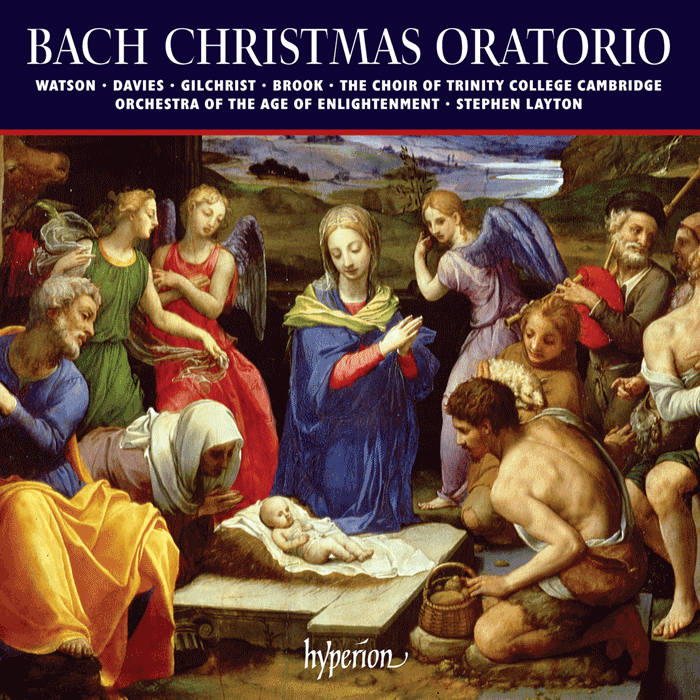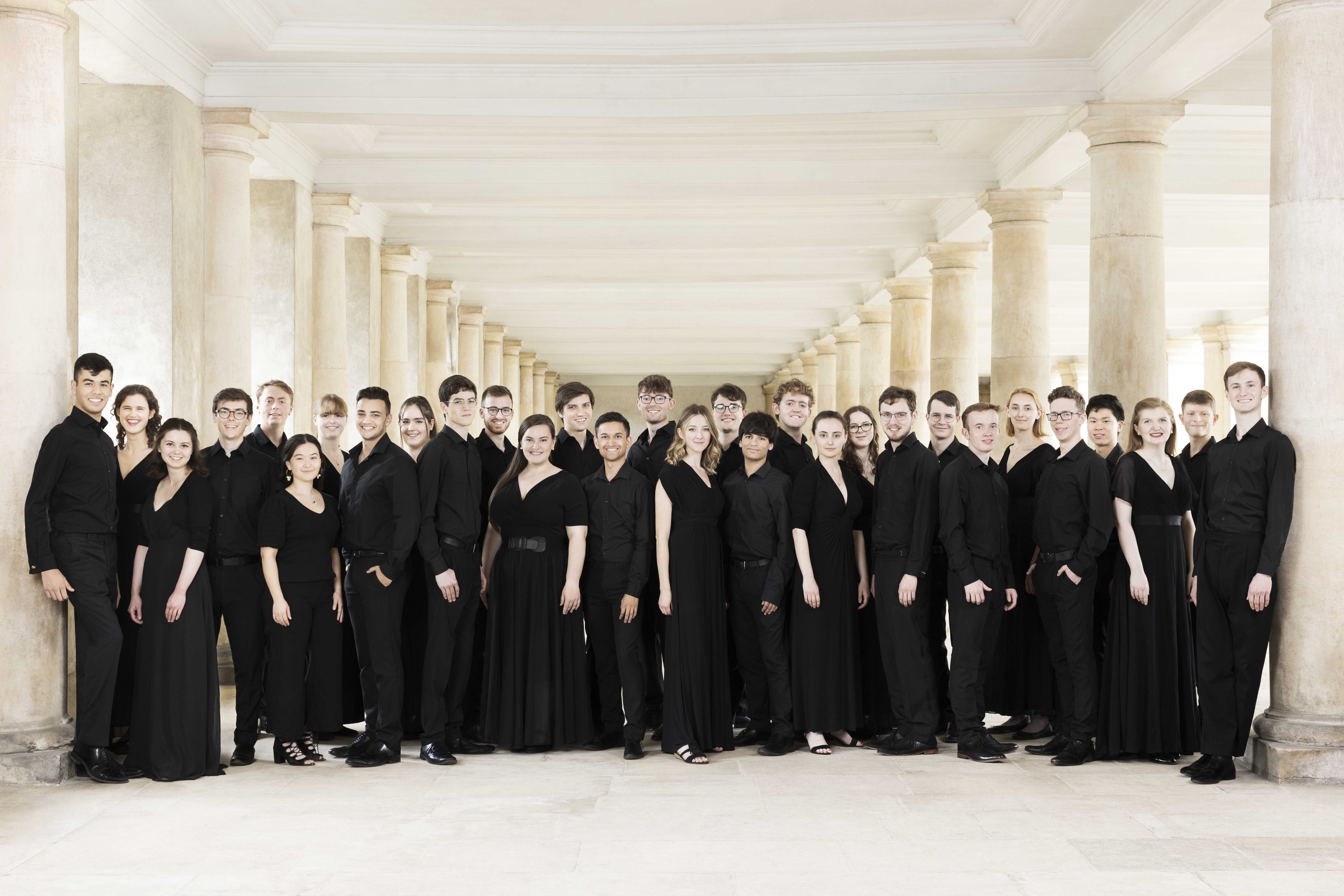Bach - Christmas Oratorio - Sinfini Music
> See recording details...*****
Bach’s Christmas Oratorio started life as a set of related cantatas, conceived for performance on the six church feasts between Christmas Day and Epiphany. The composer recycled several earlier works – secular pieces for the Elector of Saxony and his family among them – to create a compelling mix of choral numbers, recitatives and arias which collectively tell the Nativity story and meditate on its profound mystery.
Stephen Layton follows the lead set by Bach and his anonymous librettist in shaping a dramatic vision of the complete work, inviting listeners to enter a world of heightened spirituality and compassionate contemplation. If that sounds daunting, like a hard church pew on a frosty winter morning, you’ll be gently transported there by this interpretation’s tender beauty.
Conductor Layton and his excellent colleagues flourish in the lyrical warmth of Bach’s music. Listen, for example, to this passage from the ‘echo’ aria, ‘Flößt mein Heiland, flößt dein Namen’, exquisitely delivered by Katherine Watson and Trinity College chorister Rachel Ambrose Evans.
This recording suggests that we’ve reached a new age of Bach performance. Broad tempos and spiritual reflection, once anathema to early music hardliners, make a welcome return. Stephen Layton uses words and their emphasis rather than breakneck speeds to project dramatic points and underline the diverse emotional states of Bach’s music. While my mind’s ear favours a brassy, breezy conclusion to the work’s first part, Layton’s persuasive reading of ‘Ach mein herzliebes Jesulein’ emerges naturally from the text’s peaceful prayer to the infant Jesus.
Listen also to the orchestral introduction to the chorus ‘Herr, wenn die stolzen Feinde schnauben’ for the many subtle details revealed by its unhurried delivery.
A chorus of more mature voices (Layton’s Polyphony leaps to mind) would bring more heft to Bach’s contrapuntal writing. But Trinity College Choir plays to its many strengths, vocal agility and deep knowledge of the music vital among them. Sample Layton’s young choristers at their considerable best in ‘Ehre sei dir, Gott, gesungen’.
In many respects, this Christmas Oratorio is Cambridge-made; it’s certainly rooted in connections forged there by Stephen Layton over the past quarter century. While German listeners might prefer an authentic cast of native speakers, Bach’s mother tongue is served here by admirably clear diction and expressive fervour. James Gilchrist, a sage Evangelist, conveys faith in the Christmas story with equally genuine vocal authority, while Matthew Brook brings almighty dignity to his bass solos. Here’s Gilchrist on storming form, pressing shepherds to make haste with joy to Bethlehem.
If anything Iestyn Davies trumps his standout contribution to Layton’s recent St John Passion recording with singing of the rarest emotional honesty. His warmth of tone is favoured by the acoustics of Trinity Chapel and the Orchestra of the Age of Enlightenment’s richness of sound. Davies, partnered by Margaret Faultless’s eloquent violin, strikes a delicate balance between head and heart in ‘Schließe, mein Herze’, among the Christmas Oratorio’s finest numbers. The countertenor touches the divine, meanwhile, in ‘Schlafe, mein Liebster,’ raising an already exceptional album to Desert Island Disc status.
Andrew Stewart

Hyperion Records CDA68031/2
